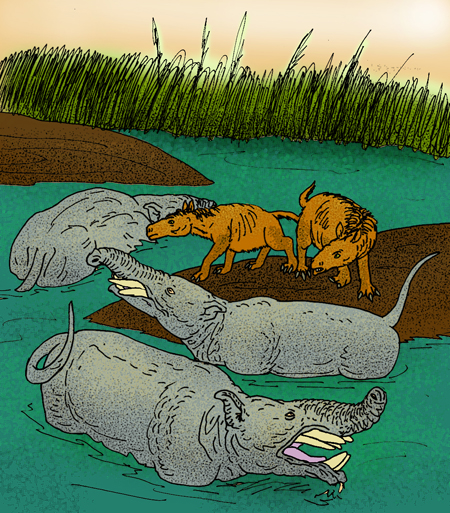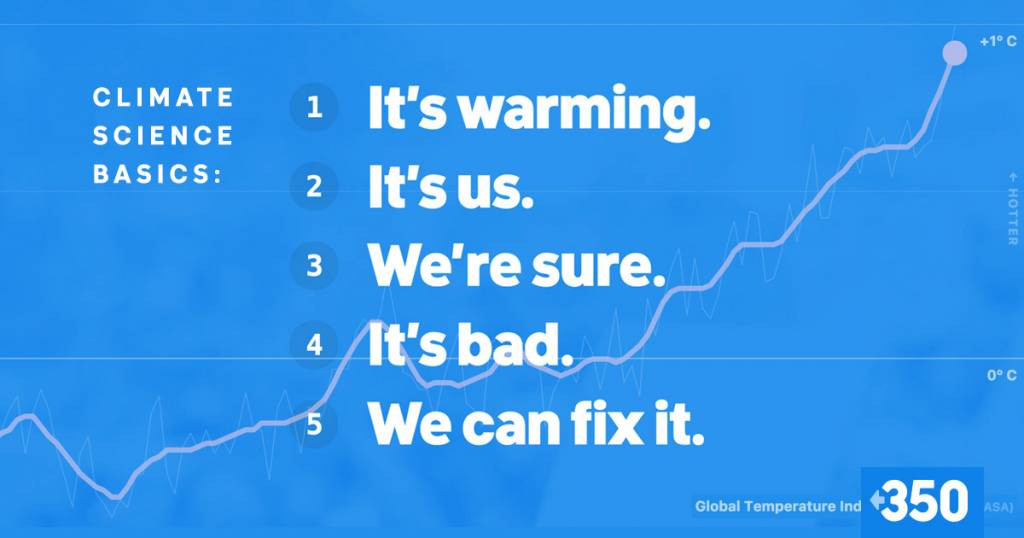If we define "better off" as being more favorable for the benefit of human life, does science tell us that that the world is better off with 580 ppm of CO2 in the atmospheric or 300 ppm?
Most people believe the world we live in is normal but for most of the past 55 million years the world has been a greenhouse world. It's only been in the last 400,000 years or so that world has been an icehouse world. An icehouse world is characterized as having a high thermal gradient from the equator to the poles and has bipolar glaciation.
The transition from the greenhouse world to the icehouse world occurred somewhere between 3 to 5 million years ago. The conditions which led to the transition were isolated polar regions from the warm marine currents of the ocean and atmospheric CO2 of 400 ppm. About 400,000 years ago the earth began experiencing a series of glacial-interglacial cycles which were caused in part due to these background conditions but were triggered by orbital cycles.
Current climate models predict extensive glaciation occurs at the south pole when atmospheric CO2 concentrations are at ~600 ppm and occurs at the north pole when atmospheric CO2 concentrations are at ~250 ppm.
When the industrial revolution began atmospheric CO2 concentrations were ~300 ppm or only ~50 ppm above the threshold of extensive glaciation of the north pole. Today atmospheric CO2 is ~400 ppm or about the same level as when the first glacial cycle was triggered.
So the question is... based upon the available science at our disposal, is the world better off at 300 ppm or 580 ppm?
Most people believe the world we live in is normal but for most of the past 55 million years the world has been a greenhouse world. It's only been in the last 400,000 years or so that world has been an icehouse world. An icehouse world is characterized as having a high thermal gradient from the equator to the poles and has bipolar glaciation.
The transition from the greenhouse world to the icehouse world occurred somewhere between 3 to 5 million years ago. The conditions which led to the transition were isolated polar regions from the warm marine currents of the ocean and atmospheric CO2 of 400 ppm. About 400,000 years ago the earth began experiencing a series of glacial-interglacial cycles which were caused in part due to these background conditions but were triggered by orbital cycles.
Current climate models predict extensive glaciation occurs at the south pole when atmospheric CO2 concentrations are at ~600 ppm and occurs at the north pole when atmospheric CO2 concentrations are at ~250 ppm.
When the industrial revolution began atmospheric CO2 concentrations were ~300 ppm or only ~50 ppm above the threshold of extensive glaciation of the north pole. Today atmospheric CO2 is ~400 ppm or about the same level as when the first glacial cycle was triggered.
So the question is... based upon the available science at our disposal, is the world better off at 300 ppm or 580 ppm?
Last edited:



